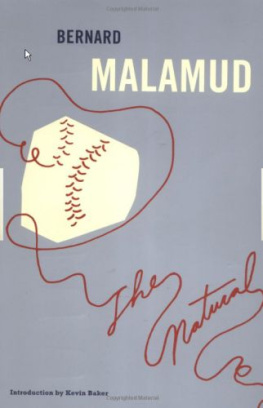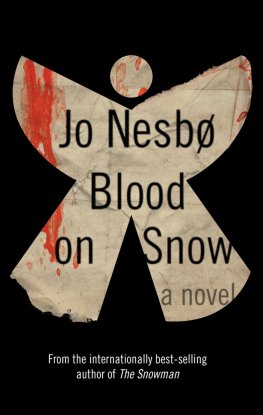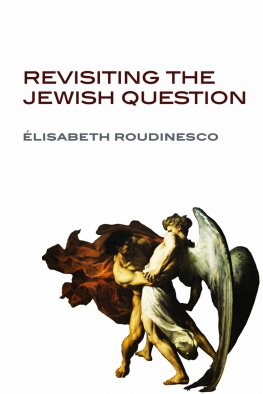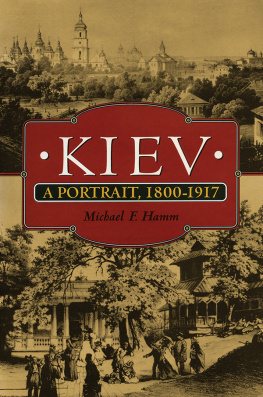II
Where do you go if you had been nowhere? He hid at first in the Jewish quarter, emerging stealthily from time to time to see what there was to see in the world, exploring, trying the firmness of the earth. Kiev, the Jerusalem of Russia, still awed and disquieted him. He had been there for a few hot summer days after being conscripted into the army, and now, again, he saw it with half the selfthe other half worried about his worries. Still, as he wandered from street to street, the colors were light and pretty. A golden haze hung in the air in the late afternoons. The busy avenues were full of people, among them Ukrainian peasants in their native dress, gypsies, soldiers, priests. At night the white gas globes glowed in the streets and there were thick mists on the river. Kiev stood on three hills, and he remembered his first trembling sight of the city from the Nicholas Bridgedotted with white houses with green roofs, churches and monasteries, their gold and silver domes floating above the green foliage. He wasnt without an eye for a pretty scene, though that added nothing to his living. Still, a man was more than a workhorse, or so they said.
The other way, across the glassy brown riverthe way he had come on a dying horsethe steppe stretched out into the vast green distance. Only thirty versts and the shtetl was invisible, gonepoof!lost, maybe expired. Though he felt homesick he knew he would never return, yet what would it come to? More than once Raisl had accused him of being afraid to leave and maybe it was true but at last it wasnt. So I left, he thought, what good will it do me? Was she back? he wondered. He cursed her when he thought of her.
He went where he had not been before, speaking in Russian to anyone who spoke to himtesting himself, he explained it to himself. Why should a man be afraid of the world? Because he was, if for no other reason. Numb with fear that he would be recognized as a Jew and ordered out, he stealthily watched from the gallery of a church as the peasants, some with knapsacks on their backs, knelt and prayed at the altar before a tall gold crucifix and a jeweled ikon of the Madonna, as the priest, a huge man in rich thick vestments, chanted the Orthodox service. The fixer had the shivers as he looked, and the strange odor of incense increased his nervousness. He almost rose out of his boots as he was touched on the arm and saw at his side a black-bearded hunchback who pointed to the peasants below smacking their heads against the flagstone floor and kissing it passionately. Go thou and do likewise! Eat salted bread and listen to the truth! The fixer quickly left.
Stupefied that he dared the adventure, he afterwards descended to the Lavra catacombsunder the old monastery on the Pechersky hill overlooking the Dnieper amid a group of frightened, pasty-faced peasants holding lit candles. They moved in a loose line along low, damp-smelling passages, where through barred windows he caught glimpses of the saints of the Orthodox Church lying in open coffins, covered with shabby cloths of red and gold. Small red lamps glowed in the walls under their ikons. In a candle-lit cell, as the line moved on, a monk with rattail hair to his shoulders held out a relic of the hand of St. Andrew for the faithful to kiss, and each knelt to touch the parchmented hand to his lips. But though Yakov had considered a quick kiss of the bony fingers, when his time came to kneel, he blew out his candle and groped his way on in the dark.
Outside there was a crowd of beggars, some of them armless and legless cripples from the late war. Three were blind. One rolled his eyes inward. One bulged his so that they looked like fish eyes. And one read sonorously by divine inspiration from a book of gospels which he held in his hands. He stared at Yakov and Yakov stared at him.
He lived in the heart of the Jewish quarter in the Podol District in a teeming tenement hung with mattresses airing and rags of clothing drying, above a courtyard crowded with wooden workshops where everyone was busy but no one earned much of anything. They stayed alive. The fixer wanted better, at least better than he had had, too much of nothing. For a while, during the cold rains of late autumn, he confined himself to the Jewish section, but after the first snowfall in the cityabout a month after he had arrivedhe began to edge out again, looking for work. With his tool sack slung over his shoulder he trudged from street to street through the Podol and Plossky, the flat commercial districts reaching to the river, and went up the hills into neighborhoods forbidden to Jews to work in. He sought, he continued to say to himself, opportunities, though in seeking them he sometimes felt like a spy behind enemy lines. The Jewish quarter, unchanged in ages, swarmed and smelled. Its worldly goods was spiritual goods; all that was lacking was prosperity. The fixer, having left the shtetl, resented the lack. He had tried working for a brushmaker, a man with a foaming beard who had promised to teach him the business. The wages were soup. So he had gone back to being a fixer and it came also to nothing, sometimes soup. If a window was broken they stuffed it with rags and said a blessing. He offered to replace it for a pittance, and when he had done the work they gave him thanks, blessings, a plate of noodle soup. He lived frugally in a low-ceilinged cubicle, in a printers assistants flatAaron Latkes, sleeping on a bench covered with a burlap sack; the flat was crowded with children and smelly feather beds, and the fixer, as he parted with kopeks and earned none, grew increasingly anxious. He must go where he could make a living or change his craft, maybe both. Among the goyim his luck might be better, it couldnt be worse. Besides, what choice has a man who doesnt know what his choices are? He meant in the world. So he walked out of the ghetto when no one was looking. In the snow he felt anonymous, in a sense unseen in his Russian cap and coat any unemployed worker. Russians passed him without looking at him and he passed them. Having been told he did not look Jewish he now believed it. Yakov trudged in the snow up the hill to the Kreshchatik, the broad main street, trying kiosks, shops, public buildings, but finding little to do, a few odd jobs, payment in greenish coppers. At night in his cubicle, a glass of hot tea cupped in his reddened hands, when he thought of returning to the shtetl he thought of death.
Latke, when the fixer said this aloud, looked at him in popeyed horror. He was a man with arthritic hands and eight half-starving children. The pain hindered his work but not his labor.
For Gods sake, patience, he said. Youre not without brains and thats the beginning of luck. Afterwards, as they say, your ox will calve.
To have luck you need it. Ive had little luck.
Youve just come green from the country, so at least be patient till you know where you are.
So the fixer went looking for luck.
One desperate evening, the gas lamps casting a greenish glow on the snow, Yakov, trudging at twilight in the Plossky District, came upon a man lying with his face in the trodden snow. He hesitated a minute before turning him over, afraid to be involved in trouble. The man was a fattish, bald-headed Russian of about sixty-five, his fur cap in the snow, his heavy face splotched a whitish red and blue, snow on his mustache. He was breathing and reeked of drink. The fixer at once noticed the black and white button pinned to his coat, the two-headed eagle of the Black Hundreds. Let him shift for himself, he thought. Frightened, he ran to the corner, then ran back. Grabbing the anti-Semite under the arms he began to drag him to the doorway of the house in front of which he had fallen, when he heard a cry down the street. A girl wearing a green shawl over a green dress was running crookedly towards them. At first he thought she was a crippled child but then saw she was a young woman with a crippled leg.






